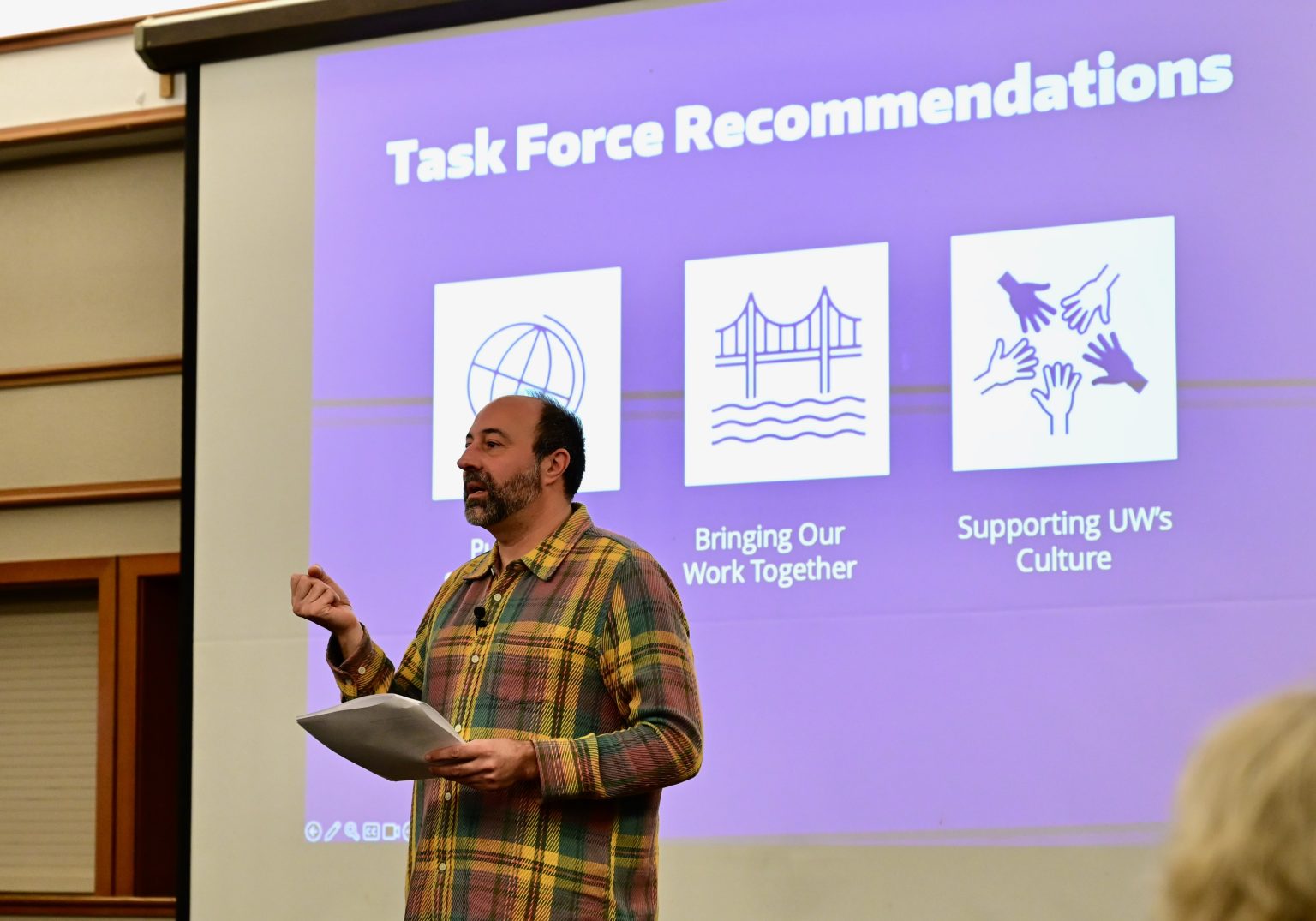The University of Washington has launched a groundbreaking initiative, Society + Technology (S+T), designed to elevate the institution’s role in addressing the complex interplay between technology and society. Born from a 2021 task force and formally launched with an inaugural convening, S+T aims to foster interdisciplinary collaboration across all UW campuses, encompassing Seattle, Tacoma, Bothell, and the School of Medicine. This initiative seeks to strengthen the UW’s research, teaching, and public engagement on the social, societal, and justice implications of technological advancements. By prioritizing societal considerations, S+T underscores the belief that technology is a product of society, shaped by human choices and values, rather than an independent force acting upon it.
Central to S+T’s mission is the fostering of a vibrant, collaborative community. Housed within the UW Tech Policy Lab and co-directed by Law Professor Ryan Calo, who also chaired the foundational Technology and Society Task Force, the initiative benefits from strong leadership and a clear vision. Monika Sengul-Jones, Director of Strategy and Operations, plays a crucial role in building the initiative’s visibility through a dedicated website, mailing list, and a robust calendar of events and programs. S+T’s collaborative spirit extends beyond the UW, actively seeking partnerships with external organizations and industry leaders, recognizing that addressing the multifaceted challenges posed by technology requires collective effort and diverse perspectives.
S+T has already initiated a range of impactful programs showcasing its commitment to interdisciplinary dialogue. A podcast series delves into critical topics such as the concept of consent in the context of large language models, sparking crucial conversations about the ethical dimensions of emerging technologies. An online salon series further expands the reach of these discussions, featuring experts exploring complex issues surrounding genetics and bioethics. Previous events have addressed timely and relevant subjects including the intersection of AI, art, and copyright, as well as the evolving landscape of cybersecurity in the age of artificial intelligence. These programs exemplify S+T’s commitment to fostering informed public discourse and engaging with a wide range of stakeholders.
The establishment of S+T reflects a growing recognition within academia of the need for dedicated centers focused on the societal implications of technology. Similar initiatives at other leading universities, such as MIT’s Media Lab, UC Berkeley’s Center for Science, Technology, Medicine & Society, Georgia Tech’s Technology for Society, and the University of Michigan’s Center for Social Media Responsibility, underscore the importance of this emerging field. These initiatives collectively aim to bridge the gap between technological advancements and their societal impact, ensuring responsible innovation and fostering public understanding of the complex issues at play.
S+T’s emphasis on “Society + Technology,” with society intentionally placed first, reflects a core principle of the initiative: technology is a product of societal choices and values. This perspective challenges the notion of technology as an autonomous force, instead framing it as a tool shaped by human intentions. This nuanced understanding is crucial for navigating the complex ethical and societal implications of technological advancements. By prioritizing societal considerations, S+T seeks to promote responsible innovation and ensure that technology serves human needs and values.
The initiative’s leadership, which includes Professor Leah Ceccarelli, Director of Science, Technology, and Society Studies at UW, further strengthens its interdisciplinary foundation. With this diverse and experienced team, S+T is well-positioned to foster impactful research, teaching, and public engagement. By bringing together scholars from various fields, S+T aims to provide a holistic understanding of the complex relationship between society and technology, preparing future generations to navigate the evolving technological landscape responsibly and ethically. This commitment to interdisciplinary collaboration positions the UW as a leader in this important field, contributing valuable insights and fostering meaningful dialogue on the societal implications of technology.


